Since the Security Council first recognized conflict-related sexual violence (CRSV) as a threat to international peace and security in 2008, the UN has developed an increasing number of pathways to prevent and respond to such crimes. One of these is the…
Read morePublications
Latest
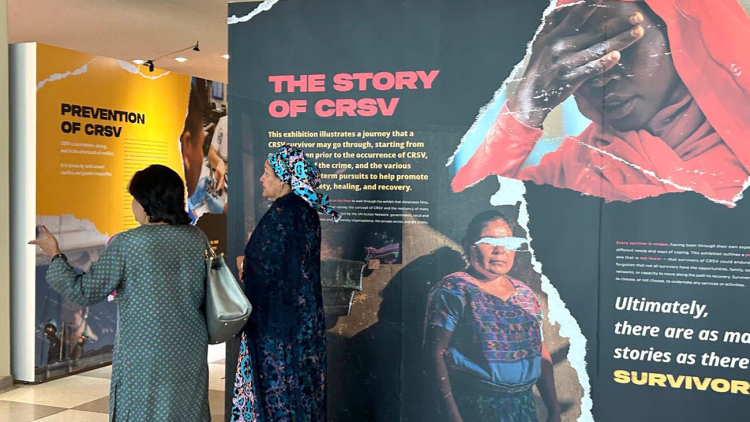
In 2012 (continued…)
-
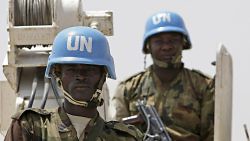
This report represents the first of a series of publications stemming from the Providing for Peacekeeping project, a partnership with IPI, Griffith University, and the Elliott School of International Affairs at George Washington University.The report analyzes the practical steps needed to broaden the base of UN troop- and police-contributing countries. It identifies current trends, summarizes […]
Read more -
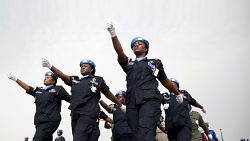
The success or failure of a UN peacekeeping operation is partly determined by the effectiveness of its individual peacekeepers. Yet the UN’s training strategy for peacekeepers remains at an embryonic stage. Systematic performance indicators to evaluate UN peacekeepers have yet to be implemented. And while the number of national, regional, and international centers for training […]
Read more -
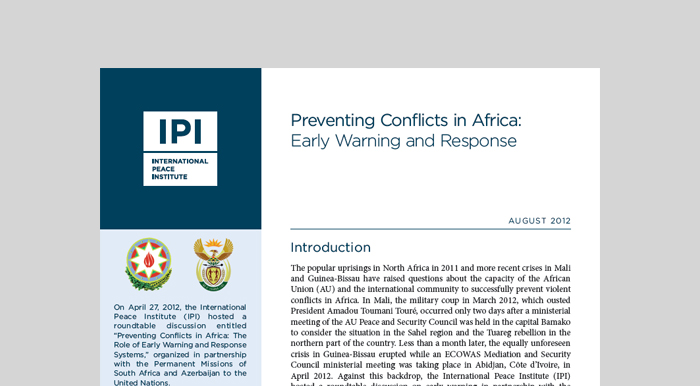
In the wake of the crises in Mali and Guinea-Bissau in 2012, IPI co-organized a meeting with the Permanent Missions of South Africa and Azerbaijan to address the role and effectiveness of regional and international early-warning and response mechanisms.
Read more -
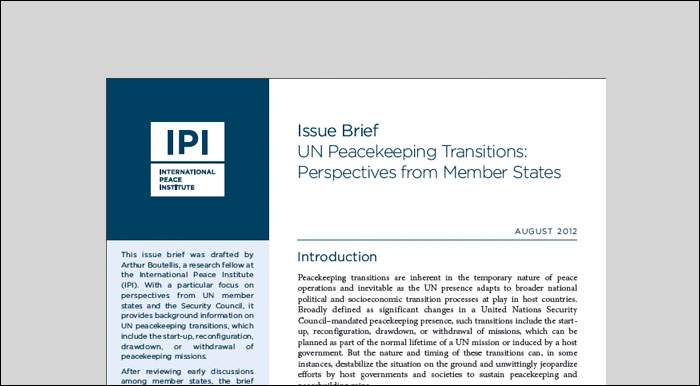
This issue brief addresses the nature and timing of peacekeeping transitions, paying particular attention to the perspectives of UN member states and decisions by the Security Council.
Read more -
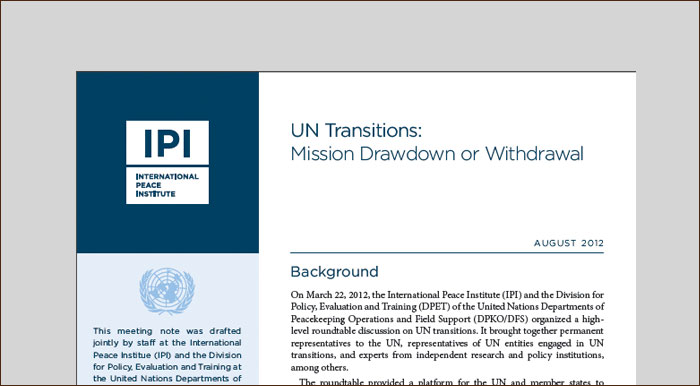
The meeting note summarizes a high-level discussion on the drawdown and withdrawal of peacekeeping and special political missions. It addresses the political dimensions of these transitions from the perspective of member states and examines the UN’s approach to planning and managing these transition phases.
Read more









